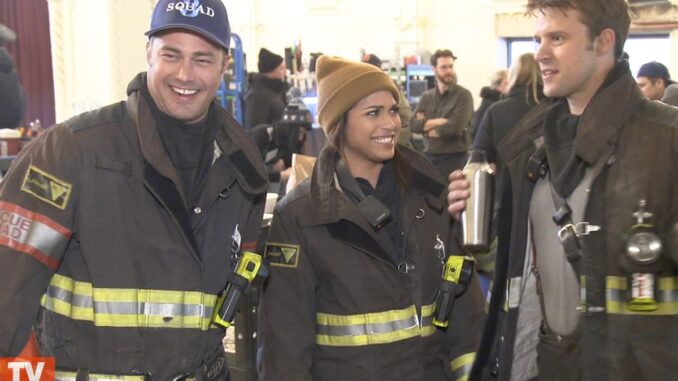
Navigating the Flames: What Season 14 of Chicago Fire Means for Long-Time Fans
For over a decade, the sirens of Firehouse 51 have echoed through our screens, drawing us into the lives and dramas of the dedicated firefighters, paramedics, and rescue squad members who call Chicago home. We’ve weathered blazes, witnessed heartbreak, celebrated triumphs, and grown deeply attached to the characters who have become like family. So, as Season 14 of Chicago Fire blazes onto the scene, the question for long-time fans isn’t just about the fires they’ll fight, but about the fires burning within the show itself: fires of change, of evolution, and of the inevitable shifts that come with such a long-running series.
Season 14 arrives at a pivotal moment. The landscape of television has drastically transformed since Chicago Fire first premiered. Streaming services have fractured audiences, and the pressure to maintain viewership amidst a sea of content is immense. This pressure translates into a need for the show to remain fresh, to introduce new conflicts, and, perhaps most dauntingly, to contend with the natural turnover of cast members. For long-time fans, this translates into a feeling of both anticipation and trepidation.
The most obvious change, and perhaps the most challenging to navigate, is the departure of familiar faces. Over the years, we’ve mourned the loss of characters who have become integral parts of Firehouse 51’s DNA. From the tragic exit of Shay to the more recent farewells, each departure leaves a void that the writers must carefully fill. Season 14, undoubtedly, will grapple with the fallout from previous exits, perhaps introducing new recruits or exploring the ripple effect on the remaining characters. For fans who have invested years in these relationships, these changes can feel like a personal loss, a reminder of the fleeting nature of television and the inevitable march of time.
However, change isn’t always a negative force. Season 14 offers a chance for the show to evolve, to explore new dynamics and storylines. The introduction of fresh perspectives, whether through new characters or the development of existing ones, can inject new life into the well-established format. We might see more focus on the personal struggles of individual firefighters, delving deeper into the psychological toll of their profession. Or, we might witness the rise of new leadership roles within Firehouse 51, challenging established hierarchies and creating new conflicts. The key for long-time fans is to embrace the potential for growth, to allow the show to surprise us, and to recognize that change, while sometimes painful, can also lead to unexpected rewards.
Another critical element of navigating Season 14 is acknowledging the show’s evolving approach to storytelling. While the core formula of dramatic rescues and compelling personal dramas remains, the writers have demonstrated a willingness to experiment with different narrative structures and thematic explorations. We’ve seen episodes that tackle social issues, episodes that focus on the intricacies of the job, and episodes that delve into the complexities of relationships both inside and outside the firehouse. This diversification of storylines helps to keep the show relevant and engaging, preventing it from becoming stale or predictable. For long-time fans, this requires a willingness to engage with these new themes, to appreciate the show’s attempts to reflect the changing world around us.
Ultimately, Season 14 of Chicago Fire is a testament to the enduring power of compelling storytelling and relatable characters. While the show inevitably undergoes changes, its core values of camaraderie, courage, and dedication remain steadfast. For long-time fans, navigating this new season requires a delicate balance of holding onto cherished memories while embracing the potential for growth and innovation. It’s about trusting the writers to continue crafting compelling narratives, even as familiar faces depart and new challenges arise. It’s about remembering the countless hours we’ve spent with Firehouse 51 and knowing that, even amidst the flames of change, the spirit of the show will continue to burn brightly. The sirens might sound a little different, the faces might change, but the heart of Chicago Fire – its unwavering commitment to telling stories of heroism and sacrifice – will hopefully continue to resonate with fans for years to come.
